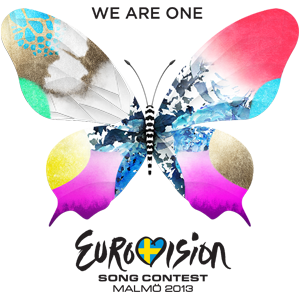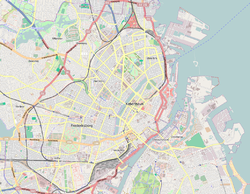
Bulgaria has participated in the Eurovision Song Contest 14 times since making its debut at the 2005 contest in Kyiv. The country's best result is a second-place finish with "Beautiful Mess" performed by Kristian Kostov at the 2017 contest also in Kyiv. The Bulgarian participant broadcaster in the contest is the Bulgarian National Television (BNT).

Bosnia and Herzegovina has participated in the Eurovision Song Contest 19 times since making its debut in 1993, after coming second in the qualification round "Kvalifikacija za Millstreet". The current Bosnian-Herzegovinian participant broadcaster in the contest is the Radio and Television of Bosnia and Herzegovina (BHRT).

The Eurovision Song Contest 2013 was the 58th edition of the Eurovision Song Contest. It took place in Malmö, Sweden, following the country's victory at the 2012 contest with the song "Euphoria" by Loreen. Organised by the European Broadcasting Union (EBU) and host broadcaster Sveriges Television (SVT), the contest was held at the Malmö Arena, and consisted of two semi-finals on 14 and 16 May, and a final on 18 May 2013. The three live shows were presented by Swedish comedian and television presenter Petra Mede, being the first time only one host had presented the show since the 1995 contest. Former Swedish entrant Eric Saade acted as the green room host in the final.

The Eurovision Song Contest 2015 was the 60th edition of the Eurovision Song Contest. It took place in Vienna, Austria, following the country's victory at the 2014 contest with the song "Rise Like a Phoenix" by Conchita Wurst. Organised by the European Broadcasting Union (EBU) and host broadcaster Österreichischer Rundfunk (ORF), the contest was held at the Hall D of the Wiener Stadthalle and consisted of two semi-finals on 19 and 21 May, and a final on 23 May 2015. The three live shows were presented by Austrian television presenters Mirjam Weichselbraun, Alice Tumler and Arabella Kiesbauer, while the previous edition's winner Conchita Wurst acted as the green room host.
Austria participated in the Eurovision Song Contest 2013 with the song "Shine" written by Andreas Grass, Nikola Paryla, Natália Kelly and Alexander Kahr. The song was performed by Natália Kelly. The Austrian broadcaster Österreichischer Rundfunk (ORF) organised the national final Österreich rockt den Song Contest in order to select the Austrian entry for the 2013 contest in Malmö, Sweden. Five songs competed in a televised show where an international jury panel and a public vote selected "Shine" performed by Natália Kelly as the winner.
San Marino participated in the Eurovision Song Contest 2014, held in Copenhagen, Denmark. The Sammarinese national broadcaster Radiotelevisione della Repubblica di San Marino (SMRTV) internally selected Valentina Monetta with "Maybe" to represent the nation in the contest. Monetta had previously represented San Marino in both the 2012 and 2013 contests, though both entries failed to qualify for the grand final. The 2014 entry was promoted through the creation of music videos in both English and Italian, and a promotional tour that included stops in Amsterdam, Moscow and London. San Marino performed 12th in the first semi-final of the Eurovision Song Contest 2014, held on 6 May 2014, and placed 10th, receiving 40 points. The entry qualified for the grand final held four days later, where the nation placed 24th with 14 points. This marked their best placing to this point.
Israel participated in the Eurovision Song Contest 2014 with the song "Same Heart" written by Rami Talmid. The song was performed by Mei Finegold, who was internally selected by the Israeli broadcaster Israel Broadcasting Authority (IBA) to compete at the 2014 contest in Copenhagen, Denmark. The song Finegold would perform at Eurovision was selected through the national final Kdam Eurovision 2014 that featured three songs submitted by the public and Finegold herself, which were presented to the public via the release of their official music videos during a show on 27 February 2014. "Same Heart" emerged as the winning song on 5 March 2014 after gaining 55% of the public vote.
Latvia participated in the Eurovision Song Contest 2014 with the song "Cake to Bake" written by Guntis Veilands. The song was performed by the band Aarzemnieki. The Latvian broadcaster Latvijas Televīzija (LTV) organised the national final Dziesma 2014 in order to select the Latvian entry for the 2014 contest in Copenhagen, Denmark. Twenty-four songs were selected to compete in the national final, which consisted of three shows: two semi-finals and a final. In the semi-finals on 1 and 2 February 2014, six entries were selected to advance from each show. Twelve songs ultimately qualified to compete in the final on 22 February 2014 where two rounds of voting by a public televote and a nine-member jury panel selected "Cake to Bake" performed by Aarzemnieki as the winner.
The Netherlands participated in the Eurovision Song Contest 2014 with the song "Calm After the Storm", written by Ilse DeLange, JB Meijers, Rob Crosby, Matthew Crosby and Jake Etheridge. The song was performed by the Common Linnets, a duo consisting of DeLange and Waylon, two well-known and popular Dutch artists, and formed by DeLange as a platform for Dutch artists to create country, Americana, and bluegrass music. In November 2013 the Dutch broadcaster AVROTROS announced that they had internally selected The Common Linnets to represent the Netherlands at the 2014 contest in Copenhagen, Denmark, with their song first presented to the public in March 2014.
Switzerland participated in the Eurovision Song Contest 2014 with the song "Hunter of Stars" written and performed by Sebalter, which is the artistic name of singer Sebastiano Paù-Lessi. The Swiss entry for the 2014 contest in Copenhagen, Denmark was selected through the national final Die grosse Entscheidungs Show 2014, organised by the Swiss German speaking broadcaster Schweizer Radio und Fernsehen (SRF) in collaboration with the other broadcasters part of the Swiss Broadcasting Corporation. Artists that were interested in entering the Swiss national final had the opportunity to apply to one of three open selections with defined submission periods organised by SRF together with the Swiss-Romansh broadcaster Radiotelevisiun Svizra Rumantscha (RTR), the Swiss-French broadcaster Radio Télévision Suisse (RTS) and/or the Swiss-Italian broadcaster Radiotelevisione svizzera (RSI). A total of 18 entries were selected to advance to an "Expert Check" round; nine entries were selected from the SRF/RTR selection, six entries were selected from the RTS selection and three entries were selected from the RSI selection. The "Expert Check" was held on 30 November 2013 and involved three/four experts evaluating the live performances of the 18 entries and selecting six entries to advance to the televised national final—three artists and songs from the SRF/RTR candidates, two from the RTS candidates and one from the RSI candidates. The six finalists performed during the national final on 1 February 2014 where a combination of jury voting and public voting ultimately selected "Hunter of Stars" performed by Sebalter as the winner.
France participated in the Eurovision Song Contest 2014 with the song "Moustache" written by Pierre Beyres, Kim N'Guyen, Lorent Idir and François Ardouvin. The song was performed by the band Twin Twin. The French broadcaster France Télévisions in collaboration with the television channel France 3 organised a national final in order to select the French entry for the 2014 contest in Copenhagen, Denmark. Three songs competed in the national final which took place during the France 3 programme Les chansons d'abord. On 2 March 2014, "Moustache" performed by Twin Twin was officially announced by France 3 as the winner following the combination of votes from a jury panel and a public vote.
Germany participated in the Eurovision Song Contest 2014 with the song "Is It Right", written by Elżbieta Steinmetz, Frank Kretschmer and Adam Kesselhaut. The song was performed by Elaiza. The German entry for the 2014 contest in Copenhagen, Denmark was selected through the national final Unser Song für Dänemark, organised by the German broadcaster ARD in collaboration with Norddeutscher Rundfunk (NDR). The national final took place on 13 March 2014 and featured eight competing acts, one of which was selected through a Club Concert wildcard round. The winner was selected through three rounds of public televoting, and "Is It Right" performed by Elaiza was selected as the German entry for Copenhagen after gaining 55% of the votes in the third round.
Belarus participated in the Eurovision Song Contest 2014 with the song "Cheesecake" written by Yuriy Vashchuk and Dmitry Novik. The song was performed by Teo, which is the artistic name of singer Yuriy Vashchuk. The Belarusian entry for the 2014 contest in Copenhagen, Denmark was selected through a national final organised by the Belarusian broadcaster National State Television and Radio Company of the Republic of Belarus (BTRC). The national final consisted of fourteen competing acts participating in a televised production where "Cheesecake" performed by Teo was selected as the winner following the combination of votes from a jury panel and public televoting.
Greece participated in the Eurovision Song Contest 2014 with the song "Rise Up", written and performed by Freaky Fortune and featuring RiskyKidd. The Greek entry was selected through the four-participant national final, titled Eurosong 2014 – a MAD show, which was developed by interim Greek broadcaster Dimosia Tileorasi (DT) and organised and produced by the private music channel MAD TV.
Portugal participated in the Eurovision Song Contest 2014 with the song "Quero ser tua" written by Emanuel. The song was performed by Suzy. In November 2013, the Portuguese broadcaster Rádio e Televisão de Portugal (RTP) announced that they would be returning to the Eurovision Song Contest after a one-year absence following their withdrawal in 2013 due to financial reasons. RTP organised the national final Festival da Canção 2014 in order to select the Portuguese entry for the 2014 contest in Copenhagen, Denmark. After a semi-final and a final which took place in March 2014, "Quero ser tua" performed by Suzy emerged as the winner after gaining 41.56% of the public televote.
Armenia participated in the Eurovision Song Contest 2014 with the song "Not Alone" written by Aram Mp3 and Garik Papoyan. The song was performed by Aram Mp3, who was selected internally by the Armenian broadcaster Public Television of Armenia (AMPTV) to represent Armenia in the 2014 contest in Copenhagen, Denmark. Aram Mp3's selection as the Armenian artist was announced on 31 December 2013, while the song "Not Alone" was later presented to the public on 14 March 2014 during a special presentation programme.
Azerbaijan participated in the Eurovision Song Contest 2014 with the song "Start a Fire" written by Stefan Örn, Johan Kronlund and Alessandra Günthardt. The song was performed by Dilara Kazimova. The Azerbaijani Eurovision entrant for the 2014 contest in Copenhagen, Denmark was selected through Böyük Səhnə, a talent show organised by the Azerbaijani broadcaster İctimai Television (İTV). Following three elimination shows and a final on 2 March 2014, a five-member jury selected Dilara Kazimova as the winner. The song "Start a Fire" was internally selected and presented to the public on 16 March.
Spain was represented in the Eurovision Song Contest 2015 with the song "Amanecer", written by Tony Sánchez-Ohlsson, Peter Boström, and Thomas G:son, and performed by Edurne. The Spanish participating broadcaster, Radiotelevisión Española (RTVE), internally selected its entry for the contest. RTVE announced Edurne as its representative on 14 January 2015, while "Amanecer" was presented to the public on 1 March 2015.
The Czech Republic participated in the Eurovision Song Contest 2018 with the song "Lie to Me" written and performed by Mikolas Josef. The Czech broadcaster Česká televize (ČT) organised the national final Eurovision Song CZ in order to select the Czech entry for the 2018 contest in Lisbon, Portugal. Six entries competed in the national final and "Lie to Me" performed by Mikolas Josef was announced as the winner on 29 January 2018 following the combination of votes from a ten-member international jury panel and a public vote.













